Q: How come the Colts are so good on third down?
BB: They do a good job mixing it up. They have some good coverage players – [Vontae] Davis and [Greg] Toler outside have done a good job of locking down wideouts and kind of packing the inside part of the coverage. They've done a good job with their pressures. They mix it up. It's not like it's just one thing every time. You have to deal with a lot of different looks.
Q: Generally speaking, the more mobile a quarterback is, the more threat there is on the edges. But guys like pocket passers, the more you can get through the 'A' gap, the more that player will be distracted because he's not as laterally mobile. We haven't seen that a lot with Tom Brady. He's not the most mobile guy. Is there a counter than your offense uses to that pressure? Is there a reason teams don't use that 'A' gap pressure in the middle?
BB: We see it.
Q: Not a lot though.
BB: I'm just saying over the course of the year, we've seen it.
Q: What's a general counter to that? Is it stuffing the middle?
BB: Well, basically what it comes down to in pass protection is if you keep – you can protect with five, six, seven or eight guys. The normal would be six. So the five linemen plus somebody else is your sixth guy. So that would handle six potential rushers. If they bring seven, then you're either hot or you'd need to have a seventh guy in protection – tight end and the back or two backs in the backfield or something like that. It just really comes down to a numbers game. Whether they put the guy in the 'A' gap, the 'B' gap or bring him outside, wherever he is, if it's a sixth guy then somebody has to block him. The question is, is that sixth guy on your back or is he on one of your linemen? If he's on one of your linemen, then you get your back out. If he's on your back, then your back stays in, then the guy who is covering the back, then he comes too. Then they add in. It's really, I think it's more how many they bring than where they bring them. Where they bring them, you have to block them, but the question is how many they bring. So, if you have five in protection, then the sixth guy potentially is a problem depending on whether or not that sixth guy – defensively, you don't know if that fifth guy that you bring, you don't know if he's going to be blocked by the line or not. If he's blocked by the line, then you have to cover all the receivers. If he's blocked by a receiver, then you gain a guy somewhere, you gain him in coverage or you can add him into the rush. So that's kind of the protection part of it. From a gap control standpoint, there's really, when you rush a passer, you have six gaps you have to control. There's five linemen right? So, it's a total of six gaps. So if you rush four, then theoretically, you have two gaps that are free. So, the quarterback can step up and find that gap if he wants to quarterback or if he scrambles or whatever. If you rush five, then you technically only have kind of one gap free, if he steps up and finds that opening… But that's the problem with rushing four guys against a mobile quarterback. You kind of have two dead gaps there. You bring two guys on the outside to contain him, and then you have four gaps on the inside [where] you only have two rushers. So it's a lot of space for them to defend. If you bring five, then you can restrict that space a little bit, but then that creates problems on the other end.
**
Check out photos from access to players and coaches during the bye week.











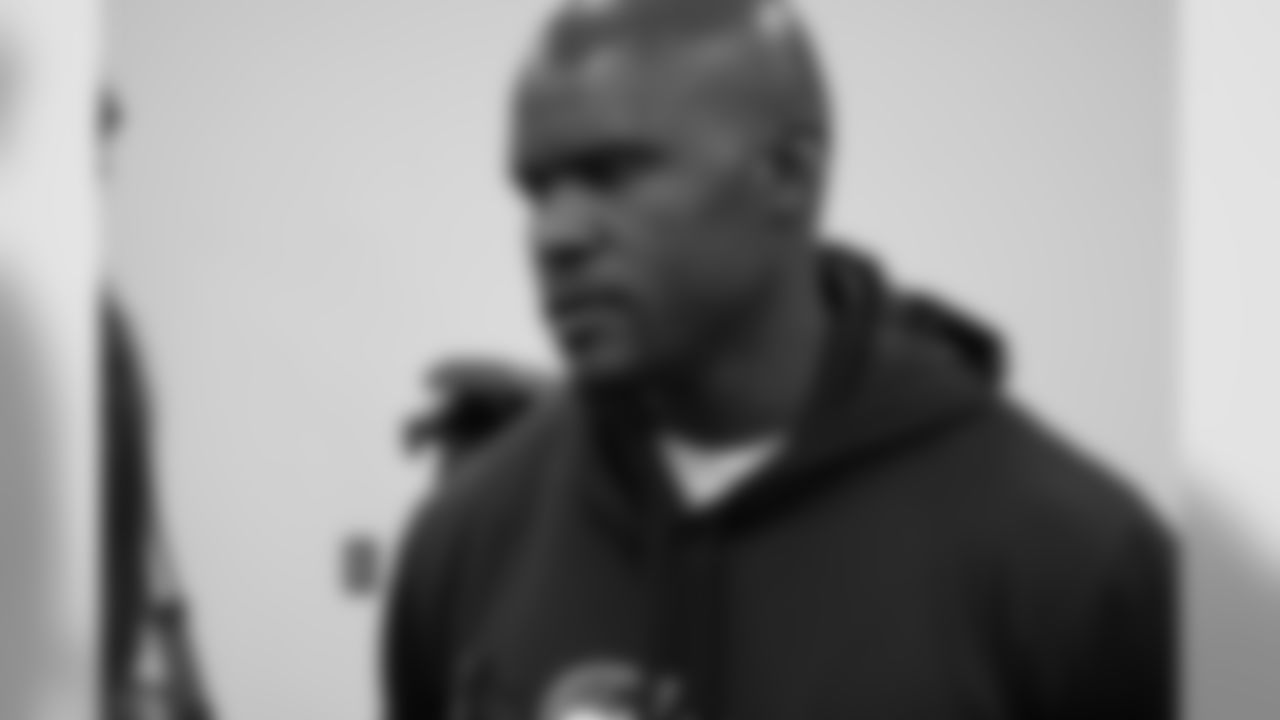



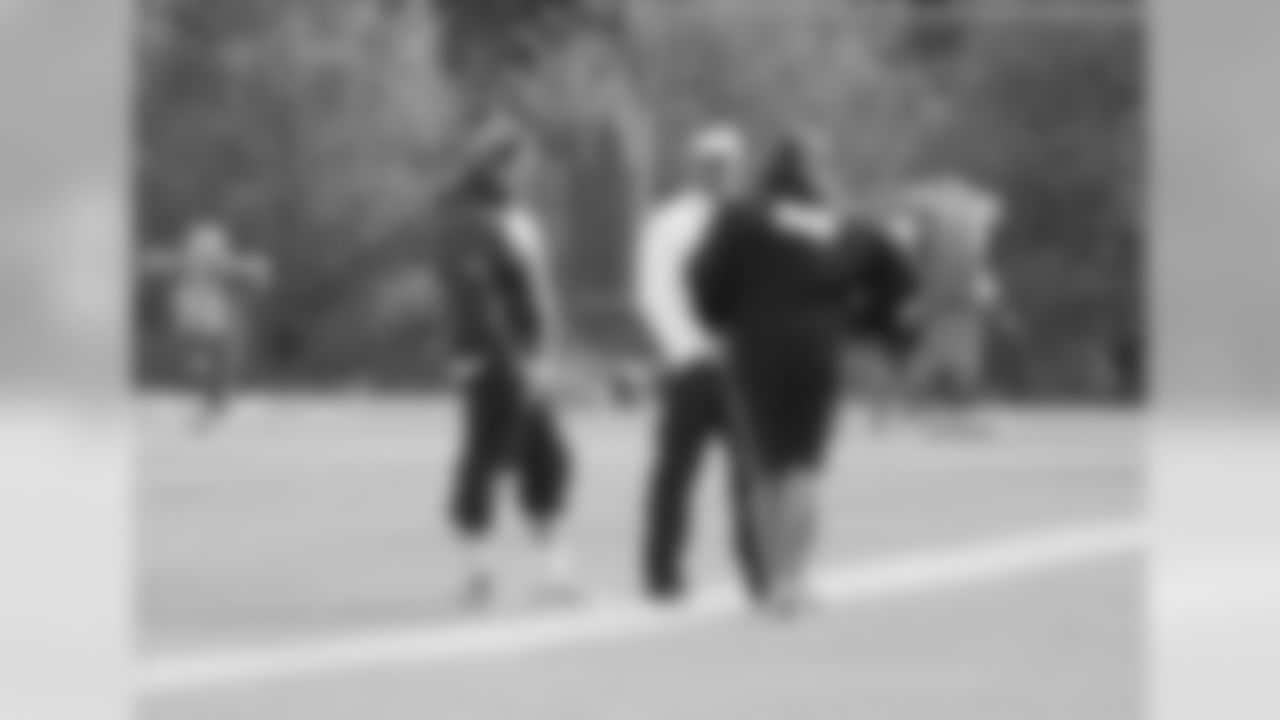


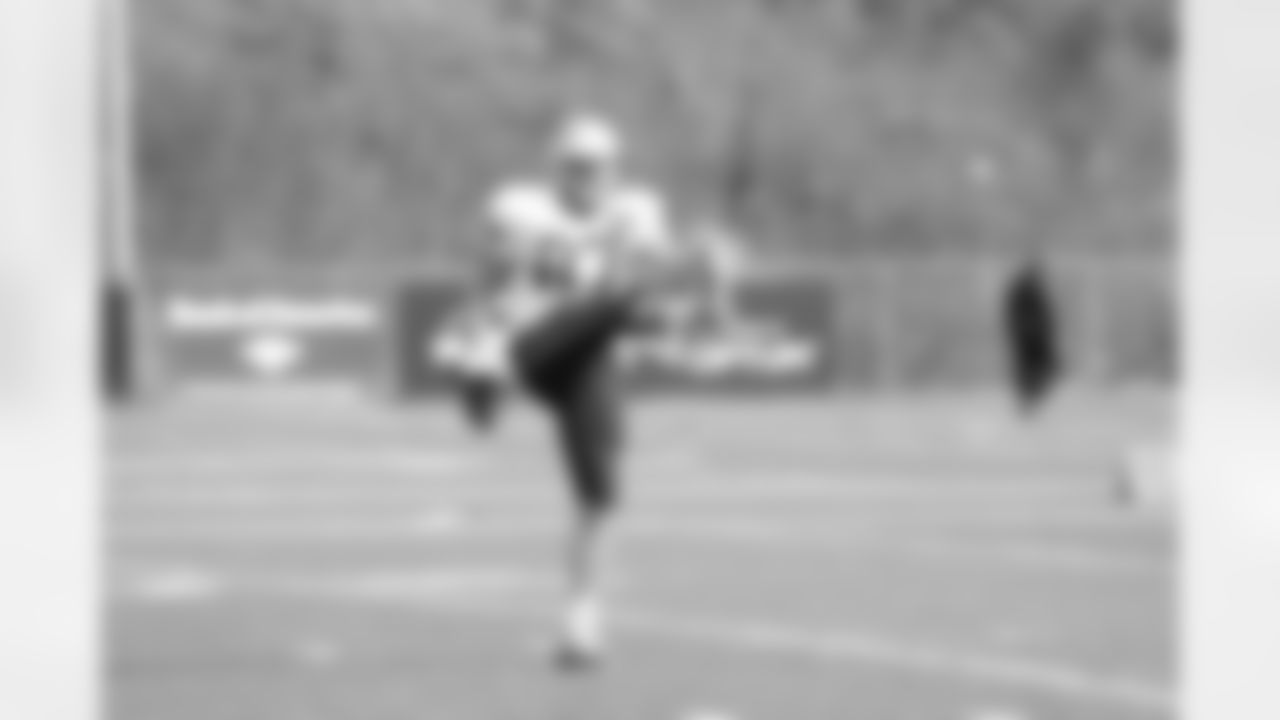
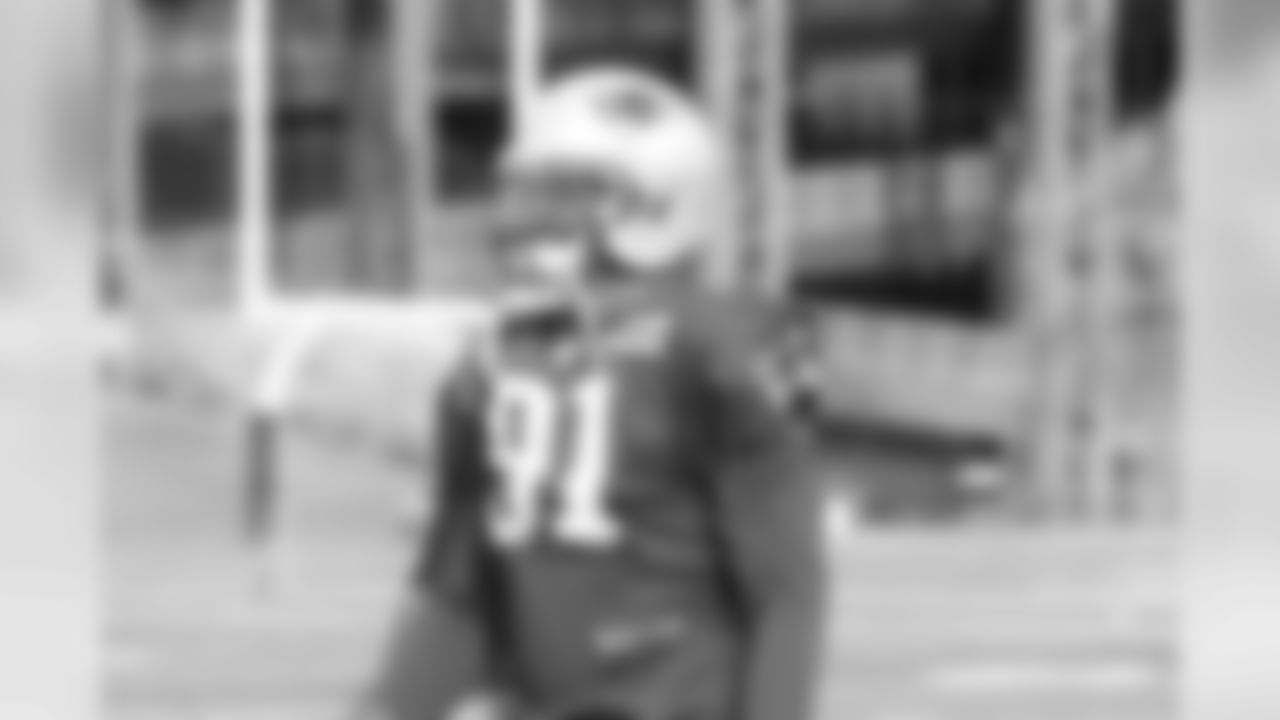
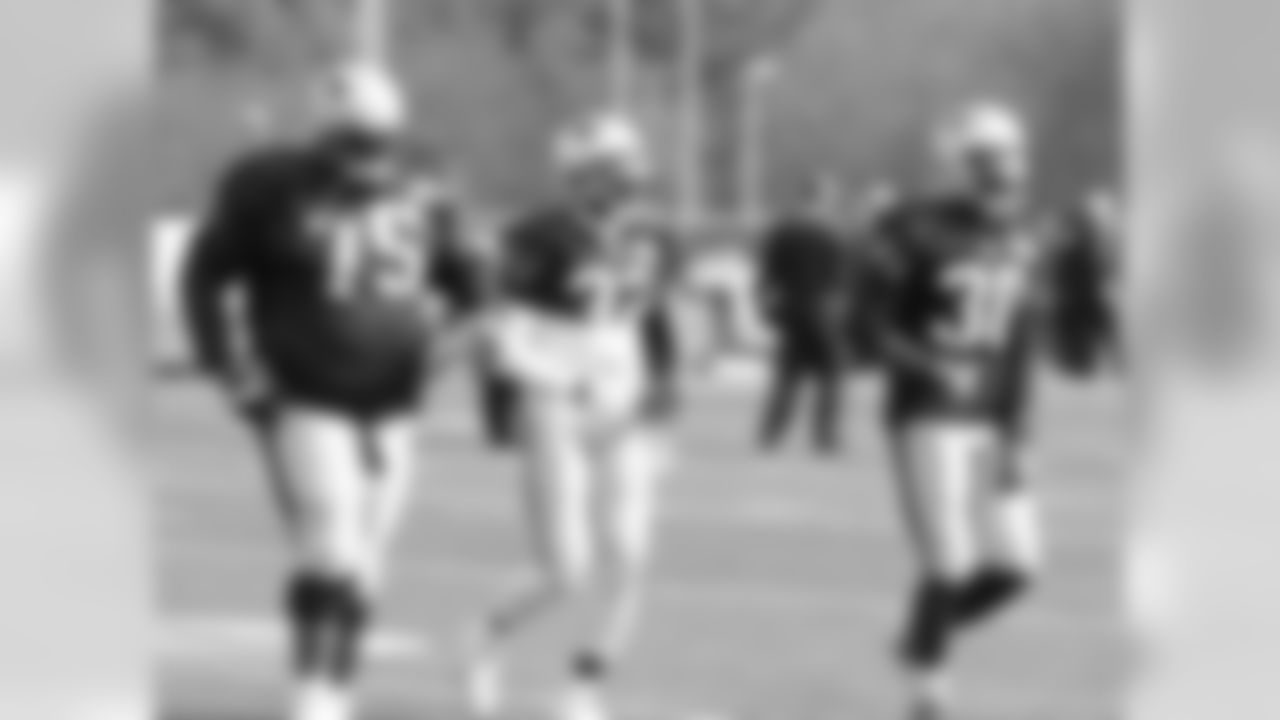
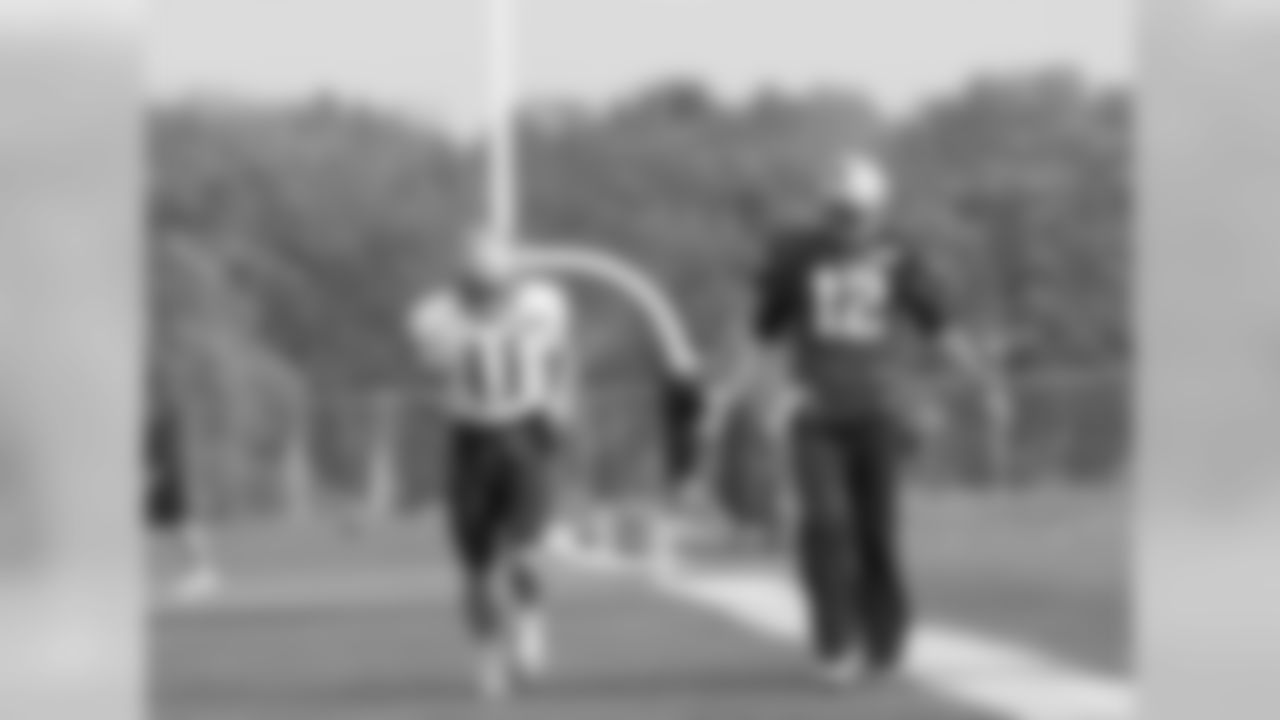

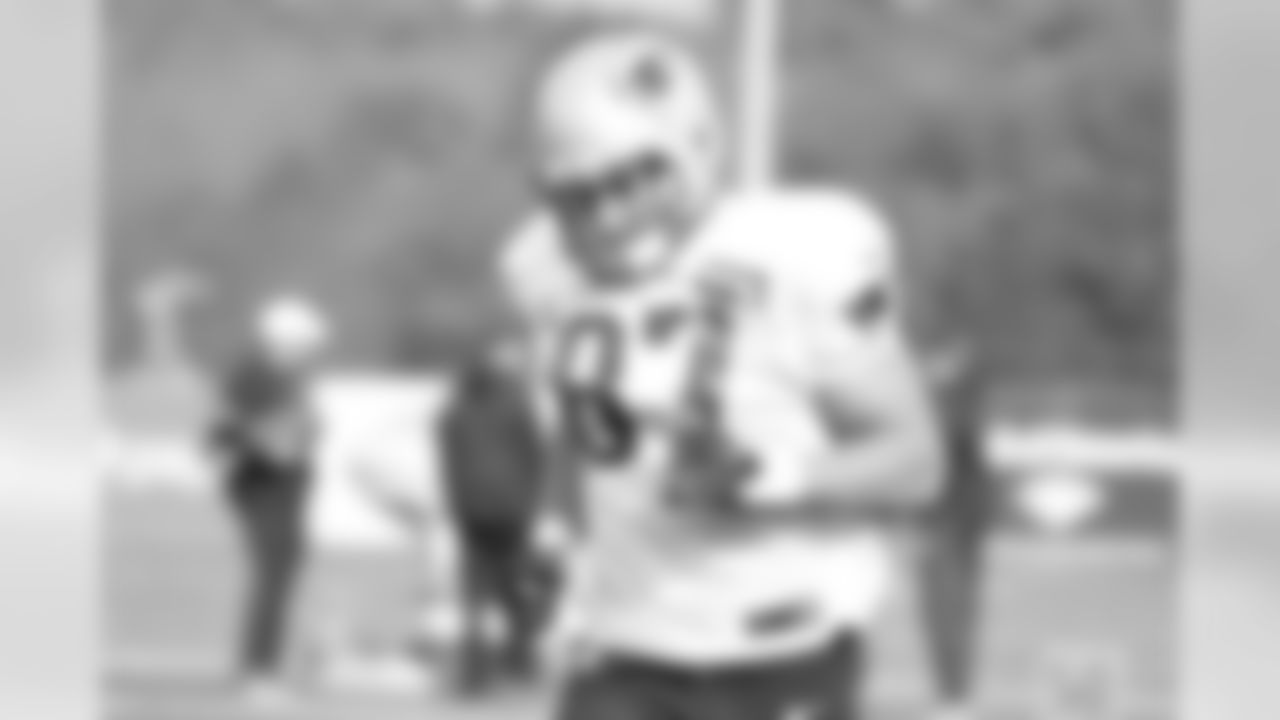

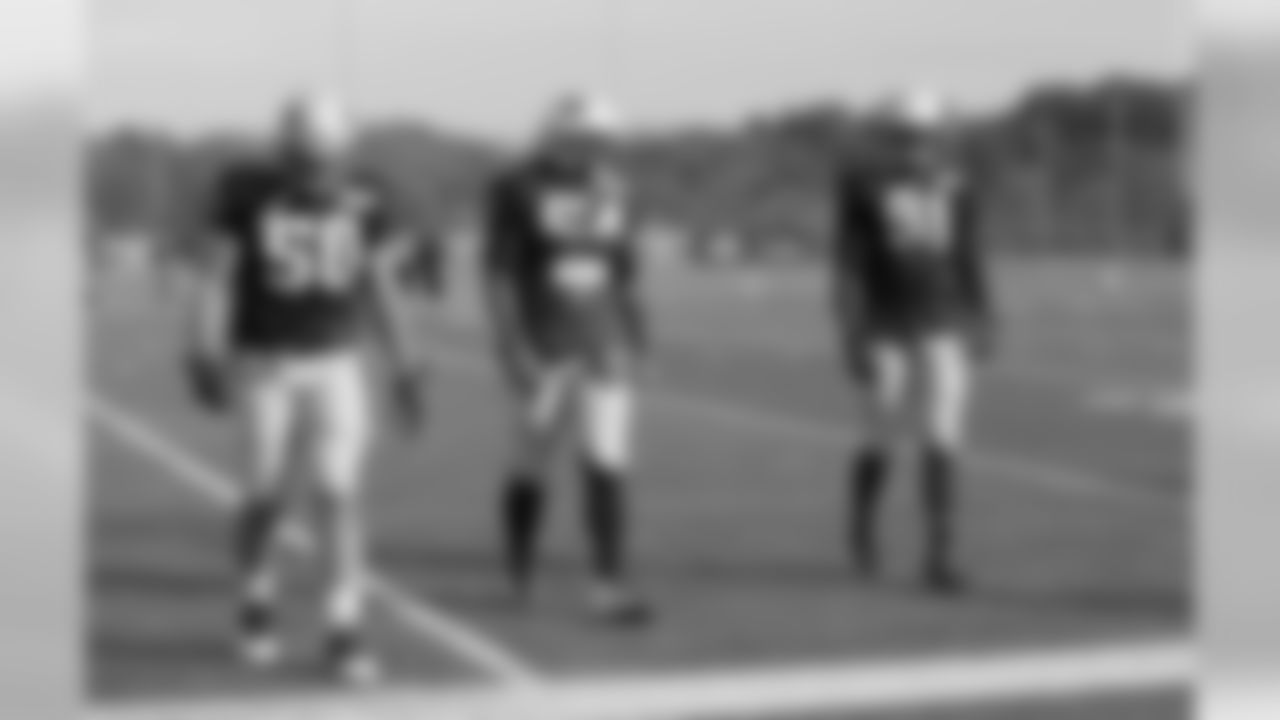
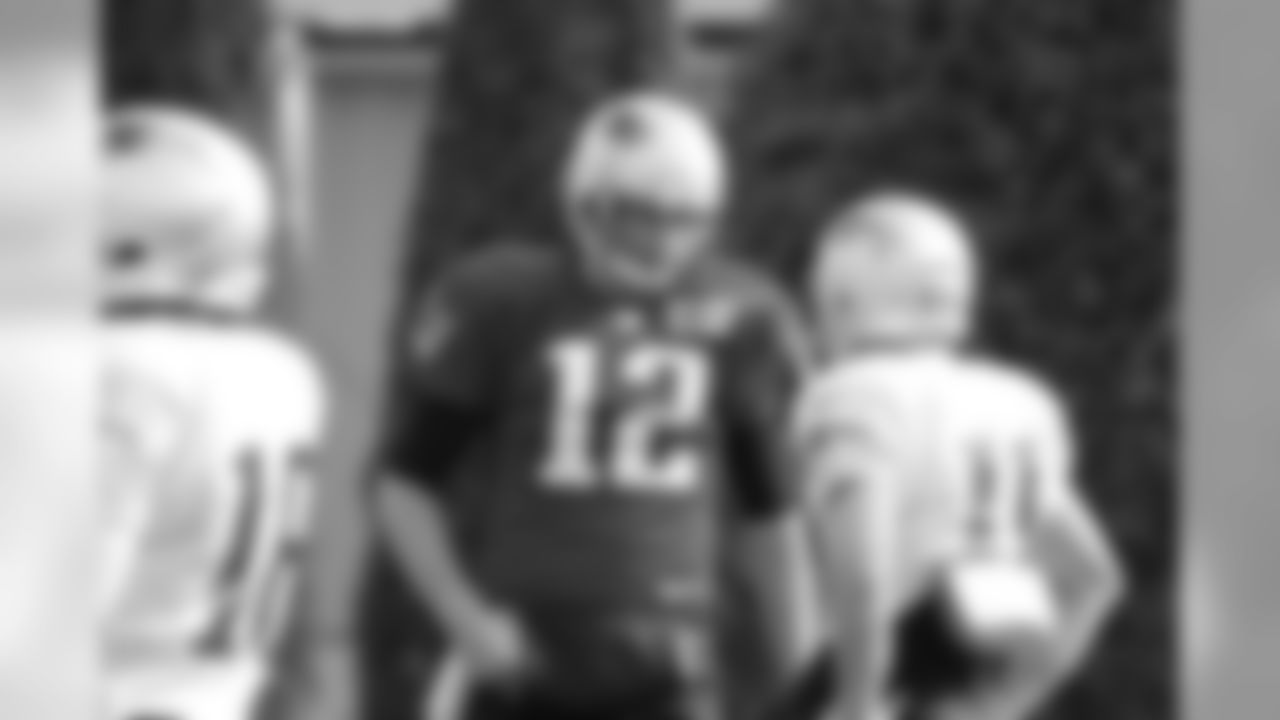
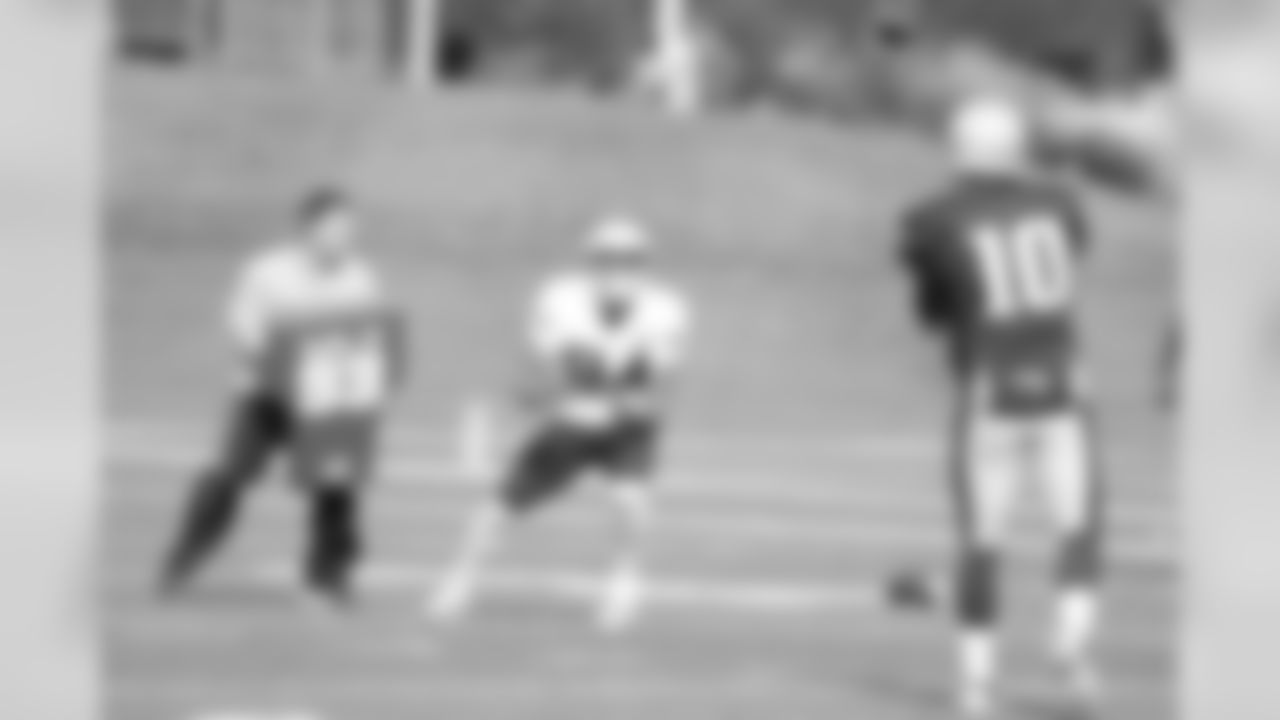
Richard Seymour, Lower Richland High School (SC).
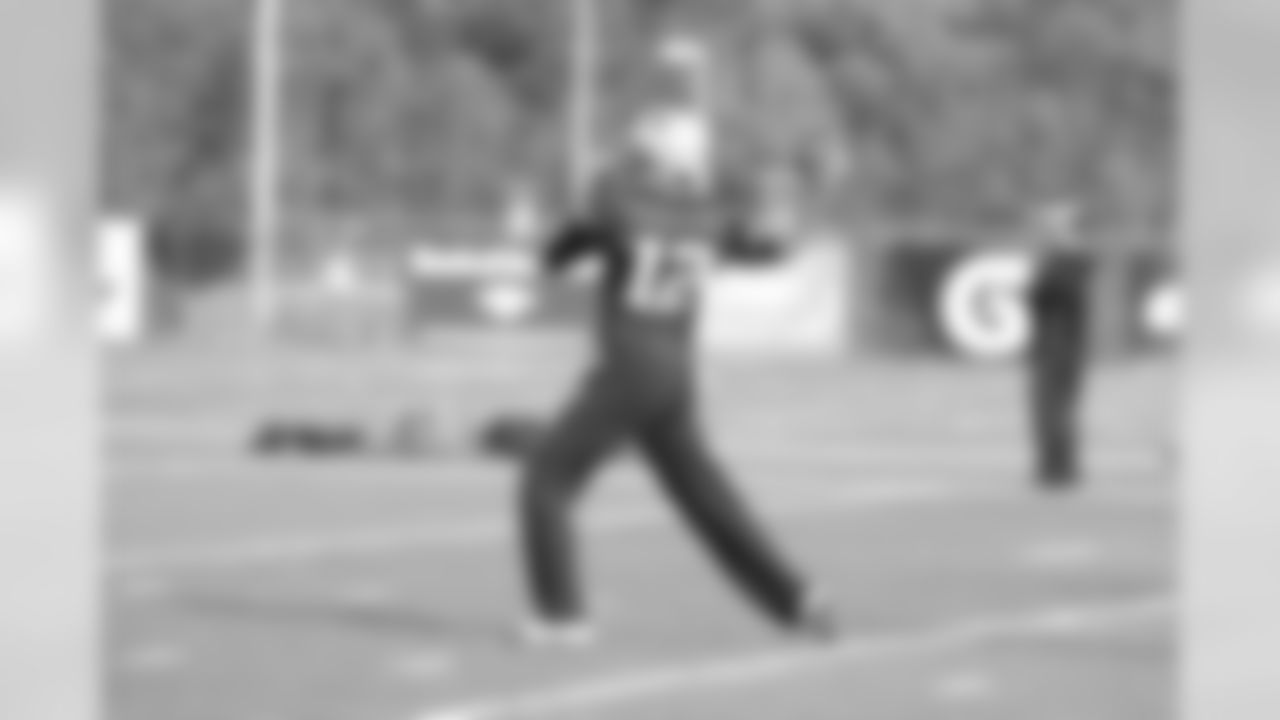




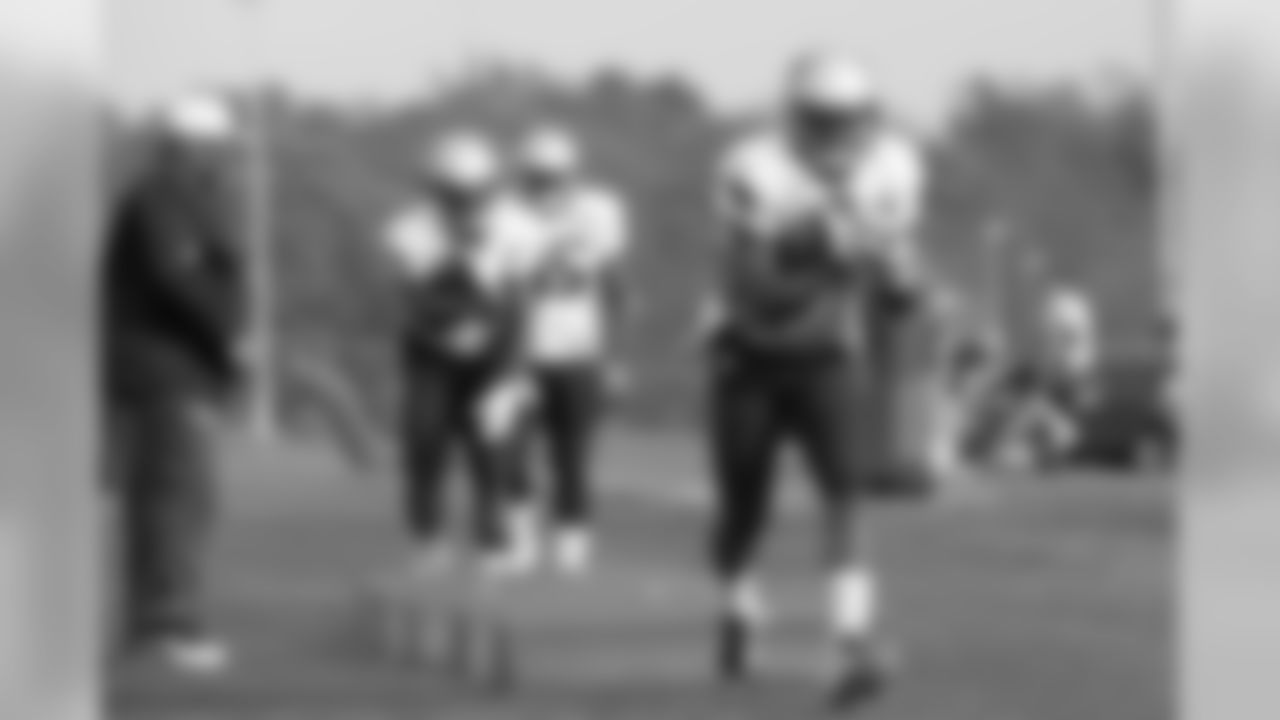


Robert Kraft and Jim Plunkett
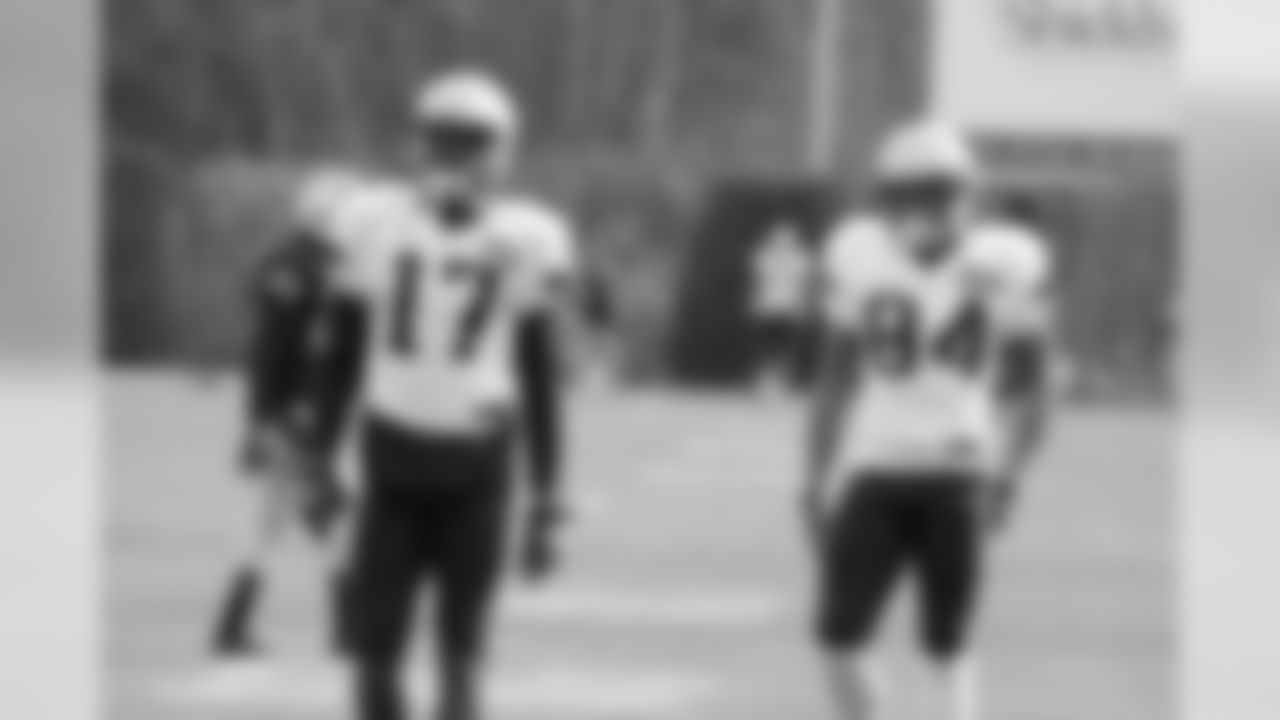
Robert Kraft and Deion Branch


Tom Brady, Gisele Bundchen, Jennifer and Joe Montana

Steve Young and Tom Brady

Steve Young, Barbara Graham, Gisele Bundchen, Tom Brady

Tom Brady and Robert Kraft


Tom Brady and David Beckham

Robert Kraft and Jeff Saturday


Robert Kraft and Deion Branch

Robert Kraft, Shaquille O'Neal and Deion Branch
Q:** Are the linebackers in between, where they have to drop, but also pay attention to those gaps?
BB: It depends on what coverage you're in. If you're in man-to-man coverage, then they're assigned a man. If you're in zone coverage, then you have vision on the quarterback. So there are advantages to being in zone coverage against a mobile quarterback in terms of vision.
Q: How much has the communication in the interior of the offensive line changed since you've had more consistency in personnel?
BB: I don't know. I think it's really a time issue. I don't think it's a problem with any individual player. It's just the opportunity to continue to do it over weeks, practices, days, weeks, months now. Just get the same look, a lot of communication is between the quarterback and the line as well –making sure that the quarterback knows who is blocking who or the quarterback telling the line who he wants blocked and who he doesn't want blocked, who he wants to handle. There's all that element of it too. I think the more you do it, the better you get at it. We've had different players playing there in different combinations. I don't think that's ever been a major issue. I mean it's obviously something that hasn't been perfect and there are breakdowns from time to time, but I don't think it's been a major issue.
Q: What have you seen out of Jamie Collins?
BB: I think Jamie and High [Dont'a Hightower] both have taken on additional responsibilities in a lot of areas since Jerod [Mayo] was injured in the Buffalo game. That varies from situation, what defense we're in, what group we have on the field and so forth. His responsibilities have increased, as have High's, in terms of setting the front, making coverage adjustments, sometimes changing pass rush adjustments or rush lanes. We're not always in the same things, so it varies depending on what we're in, what group we have on the field and what we have called.
Q: How flexible does it make you guys when you have guys in the middle like Jamie and Hightower that seem to have a lot of experience as pass rushers too and can come from different spots on the field?
BB: I think defensively the more things a player can do defensively the more valuable the player is. So, if he can rush and cover or play the run and pass rush or play man and zone or play corner and safety or inside and outside, yeah, those things just add value to your defense. You don't have to substitute as much. You're able to keep the same players on the field and do different things. So, if you have a guy that can rush, that's good. If you have a guy that can play man-to-man, that's good. You don't have to worry about that matchup. You can play zone, he's instinctive, then that's good. You can call whatever you want. That would be great if you could keep the same guys on the field all the time and have enough versatility to do what you want to do, have safeties that can cover receivers and have linebackers that could play the run and could blitz and could play out in space in coverage. That would be ideal. That would great. Just put 11 guys out there and you would be forcing the matchups on the offense. But they're hard to find.
**
Q:** How important has their running game with Ahmad Bradshaw and that being complementary to the passing attack?
BB: Good. Yeah, good. They're well balanced. Both backs have been productive running the ball; both backs have been productive catching it. They use a lot of different formations: three wide receivers, two wide receivers, one wide receiver in the running game, play-action. The running game sets up play-action. The tight ends are effective blocking; they're effective receiving. They're a well balanced offense.
Q: Is the onside kick something you have to be more aware of this week?
BB: Yeah, no question. They've had a couple surprise onside kicks. They kind of overload or put the formation to displace the front of your kickoff return unit. That creates some potential openings or spaces. And they got the must onside kick against Denver, so they've recovered three onside kicks – two surprises. Yeah, it's definitely something. You don't want to give away – ever – a possession. It's the most important thing in any return game, kickoff or punt return, is number one, you get the ball. That's number one. You always defend that, but it's probably a little more of an issue this week because they've done it. We know that [Special Teams Coordinator Tom] McMahon will do those kind of things. They're a very aggressive special teams unit in terms of rushes, fakes, onside kicks, things like that. Yeah, it's definitely another weapon in there game you have to defend.
Q: Adam Vinatieri is still perfect on the season. Is it crazy to still see him doing it at such a high level?
BB: Yeah, he's really kicking the ball great. The ball goes perfectly straight. It doesn't move. It just [goes]. Every kick is right on the money. You have to try to block it. Waiting for him to miss, you'll be waiting all day. You have to see if you can somehow affect the kick. Yeah, he's kicked the ball great, no question.
Q: In his first year in '96, do you remember any of your early interactions with him?
BB: Yeah, sure. Yeah, absolutely. There were a lot of us [who came in] that year. That was [Tedy] Bruschi and [Terry] Glenn, that whole draft. Then there were a few free agents that year too: [Tom] Tupa and Vinatieri. Yeah, no, I had a lot of interaction with those guys.
Q: Do you remember working him out?
BB: No, but on the field, you know, we practiced. I have a good relationship with Tom Tupa, obviously you know, a good relationship with Adam. It was good. It was a good group. Really it was good. Worked after practice with those guys, with [Special Teams Coach Mike] Sweatman, and Troy [Brown] returning punts and so forth. I got to work with those guys some because others of us would help Mike out with the kicking game, scout teams or doing returner or whatever the phases was. [Wide Receivers Coach] Charlie [Weis] and I, [Defensive Assistant/Linebackers Coach] Dante [Scarnecchia] of course. I think we had like five special teams coaches on that staff: [Defensive Line Coach] Romeo [Crennel], myself, Dante, Mike, there might have been another one on offense; [Defensive Coordinator/Linebackers Coach] Al [Groh]. We were all involved in the kicking game. It was definitely, Adam was really a mature, he played in Europe but a really mature kid at that point. Obviously kicked in a lot of bad weather out at South Dakota, so that didn't really phase him.
**
Q:** There was a game early on where he had multiple misses. Do you remember that game at all?
BB: He wasn't the kicker then that he is now.
Q: Was there any sense of panic or did you like his mental makeup as a young player?
BB: No, I think he had a great, great mental makeup. Like I said, I've been really lucky here with Steve [Gostkowski] and Adam, but as good a mental makeup as any kicker I've been around relative to Cleveland, Baltimore, Jim Turner in Denver, Errol Mann in Detroit, [Matt] Bahr had a good makeup. I wouldn't say there's been a lot of bad ones, but his is great. Like Steve, he worked out with all the players, did the offseason program, didn't have his own kicking program. He did what the other players did in terms of running, lifting. He had a good, interactive personality. Tupa was good too, at that same time. I don't know how much Tupa influenced that, whether he kind of fed off of Tom a little bit. But Tom was a quarterback and same type of, similar.
Q: Involved.
BB: Yeah, yeah, involved in everything. Not just off to the side kicking, but they were involved in a lot of other things. On defense, we used Adam and Tom, because again [they're] both pretty athletic guys, as scout team-type guys in practice and stuff like that. It wasn't, there are some kickers you wouldn't do that with, those guys were just, they gave you a good look.
Q: Adam turns 42 in late December. With your experience and seeing the way he's kicking and where he's kicking, what do you think is the end game for him in terms of how long he can go if he wants to?
BB: Right now, I don't think anybody is kicking better than he is. There are a lot of guys kicking good, but I don't think anybody is kicking any better. He's in a great, great situation as far as not having to deal with the kickoffs. But as far putting the ball down the middle between the uprights, he's tremendous. The way he's kicking now, I don't see where the end in sight is. Distance isn't a problem, accuracy's not a problem. He gets good lift on the ball, not exceptional, but good. He's kicking in a good environment. He's drilling them. He looks great.
Q: Obviously it didn't end as everybody anticipated and you replaced him with Stephen Gostkowski through the draft. When you have a player with that level of experience go somewhere else, is there a hatchet burial? Is every relationship different? Have you done that with Adam?
BB: Look, it's the NFL. Players change teams every year. It's just not a big news story, is it? Players change teams.
**
Team photographer, David Silverman, offers up his best from the Patriots-Colts game on Saturday, January 11, 2014.


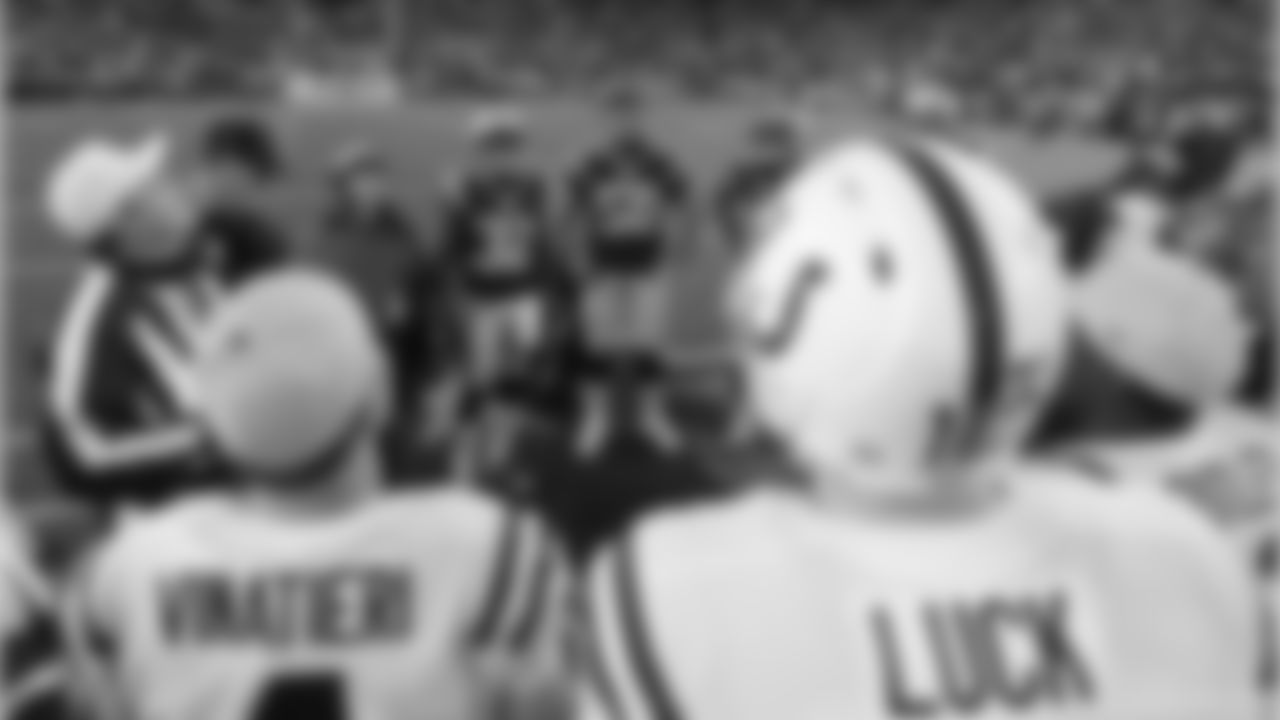


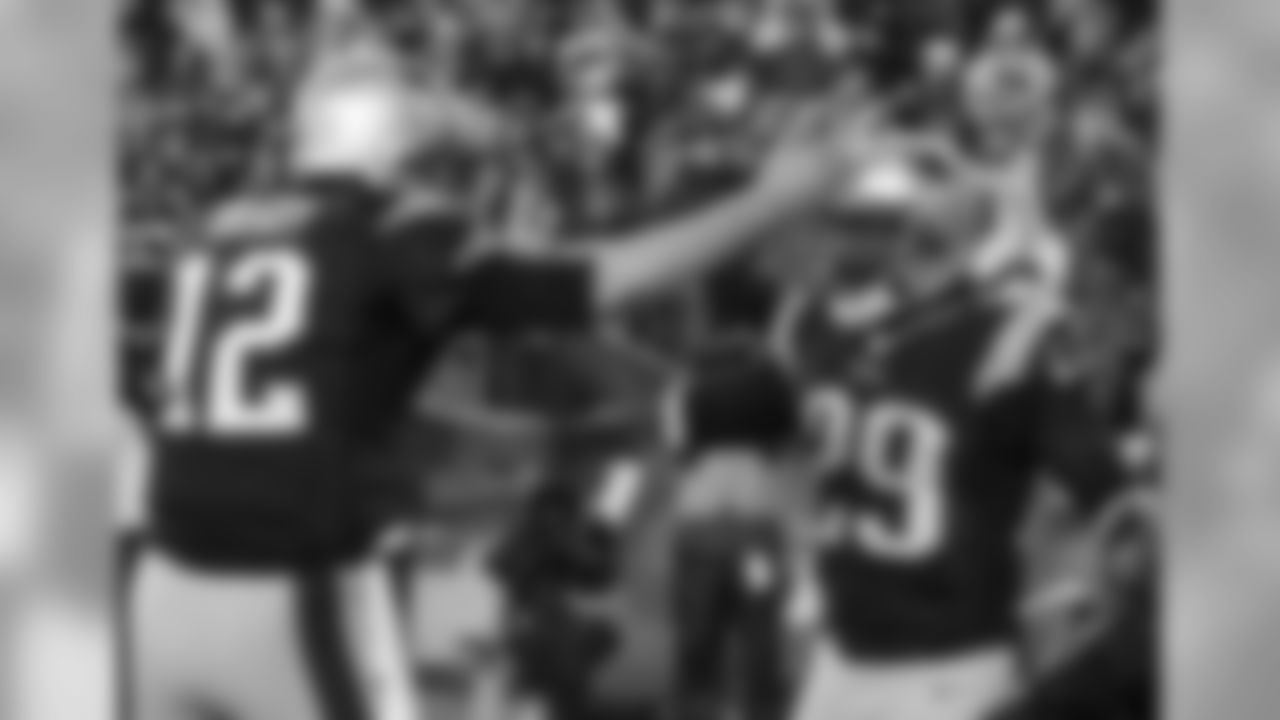


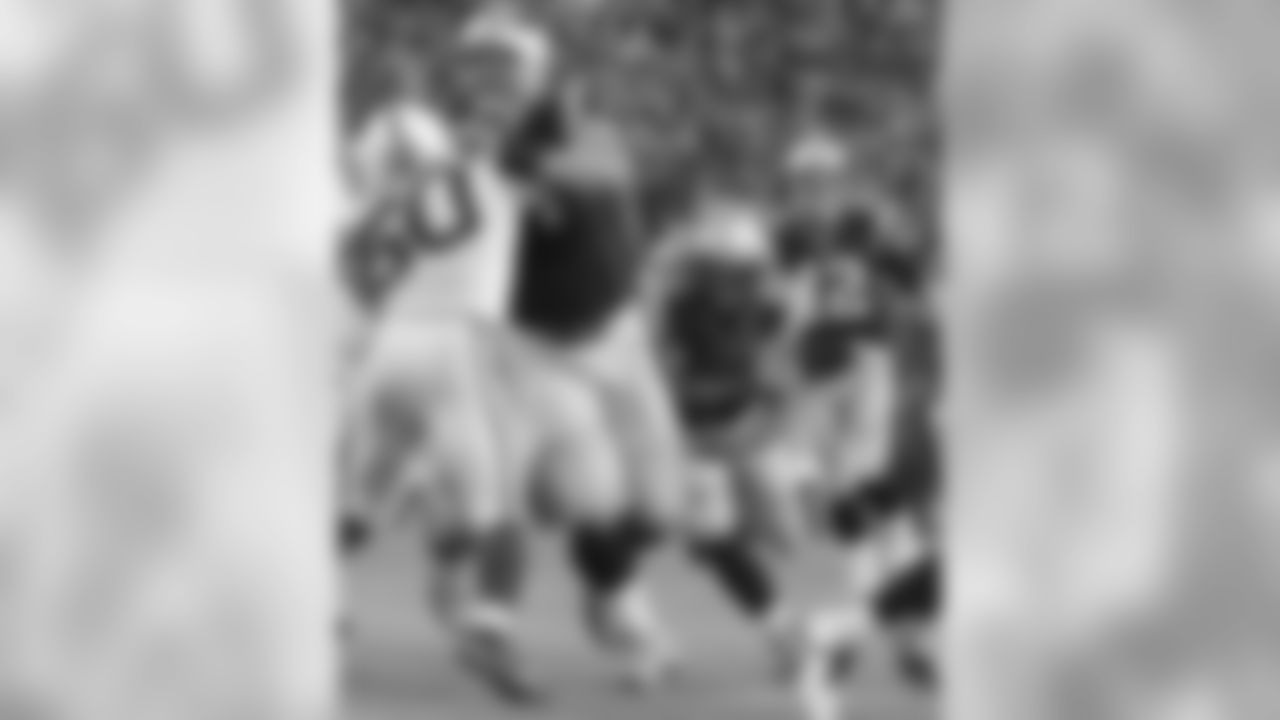
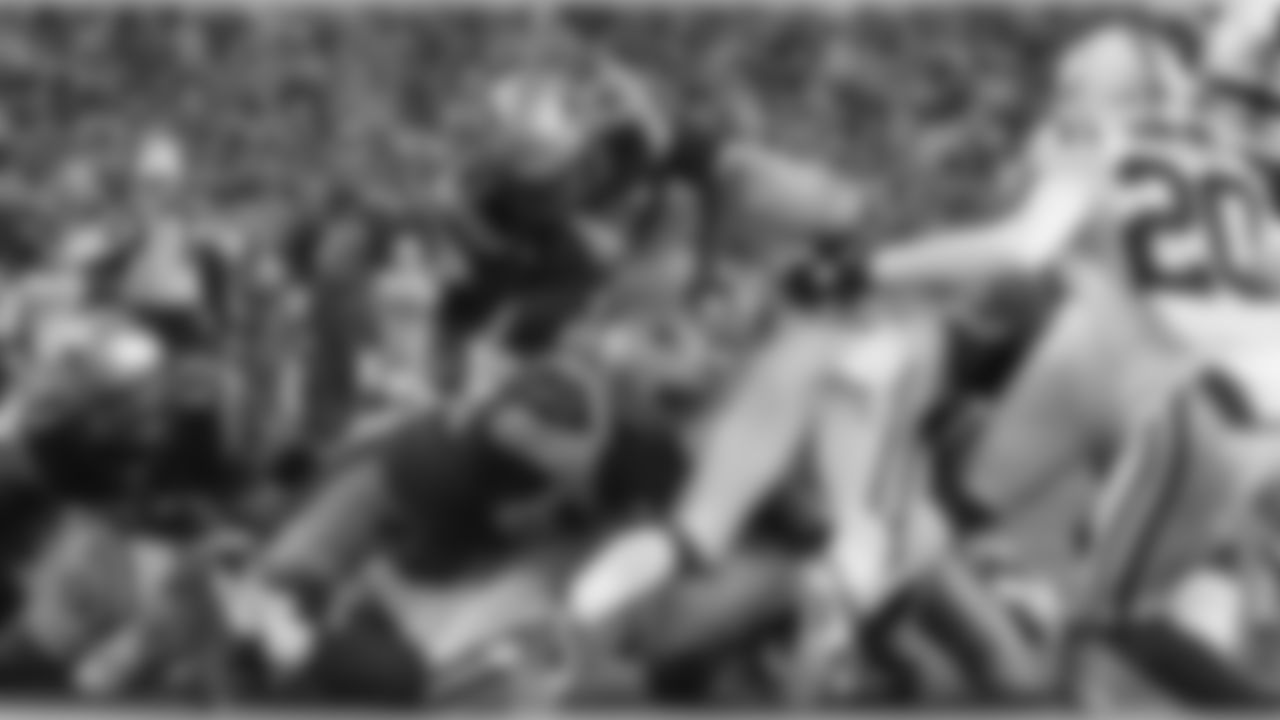
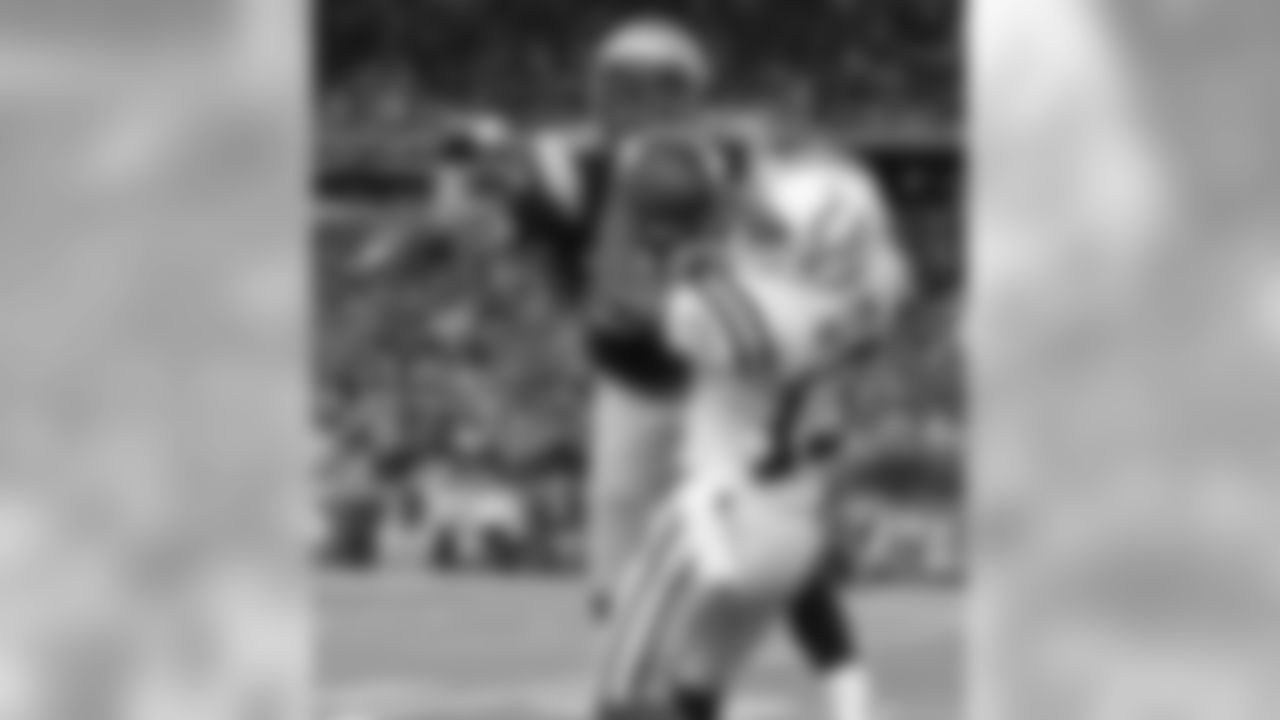

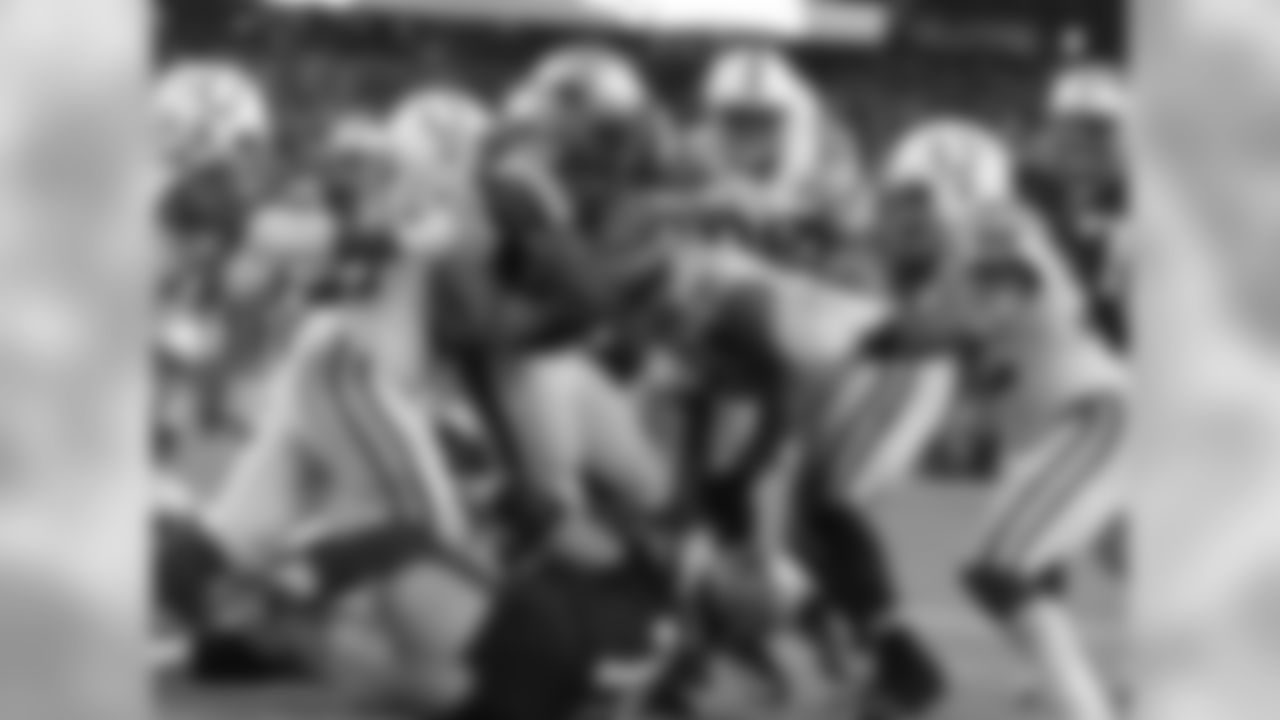

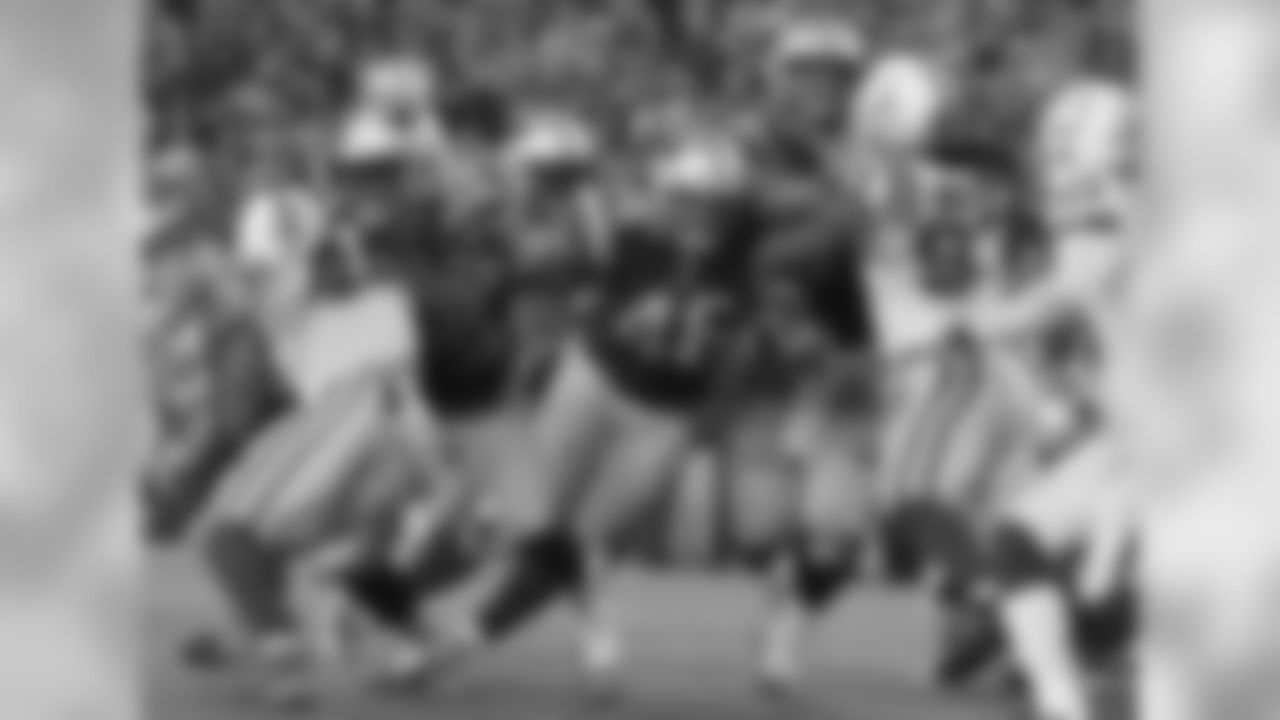

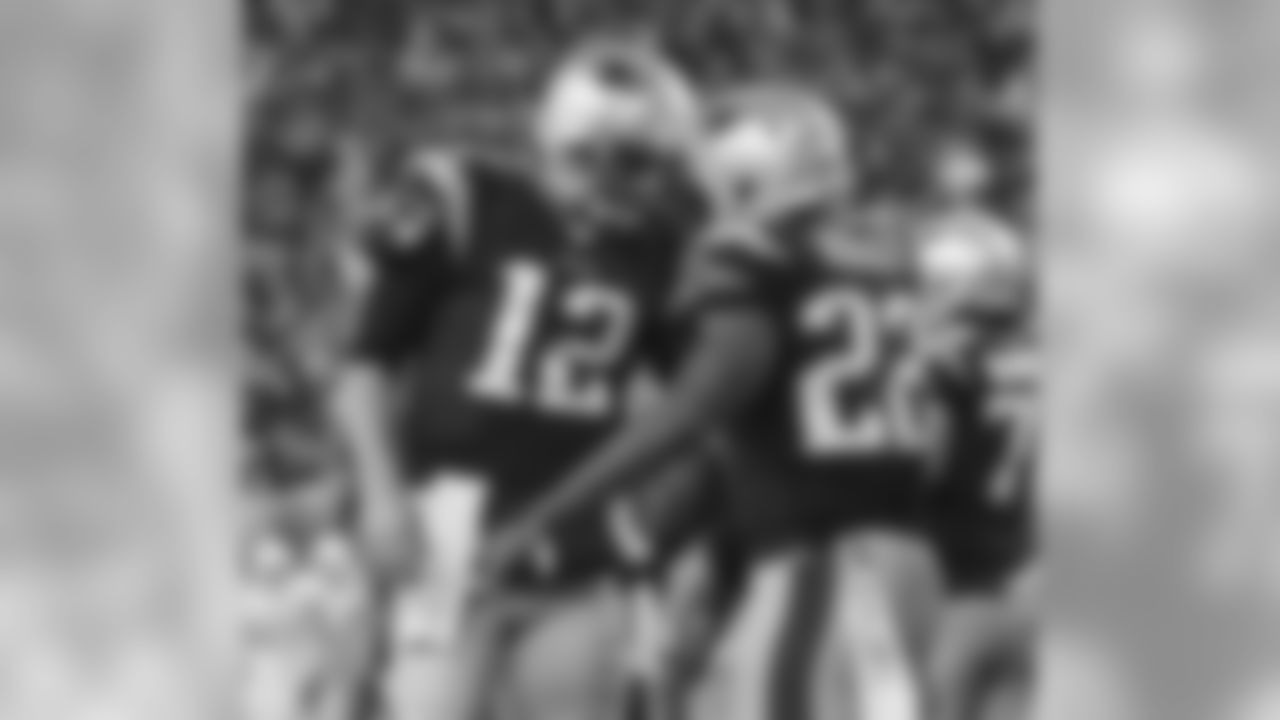

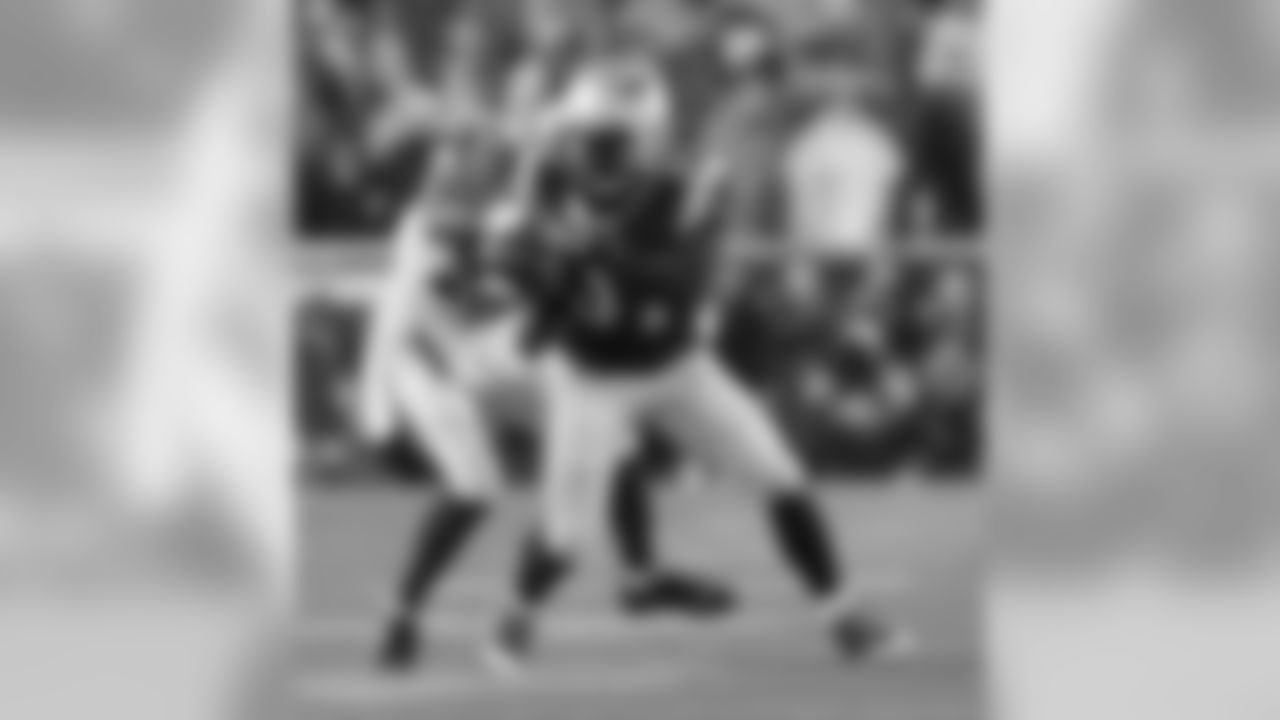
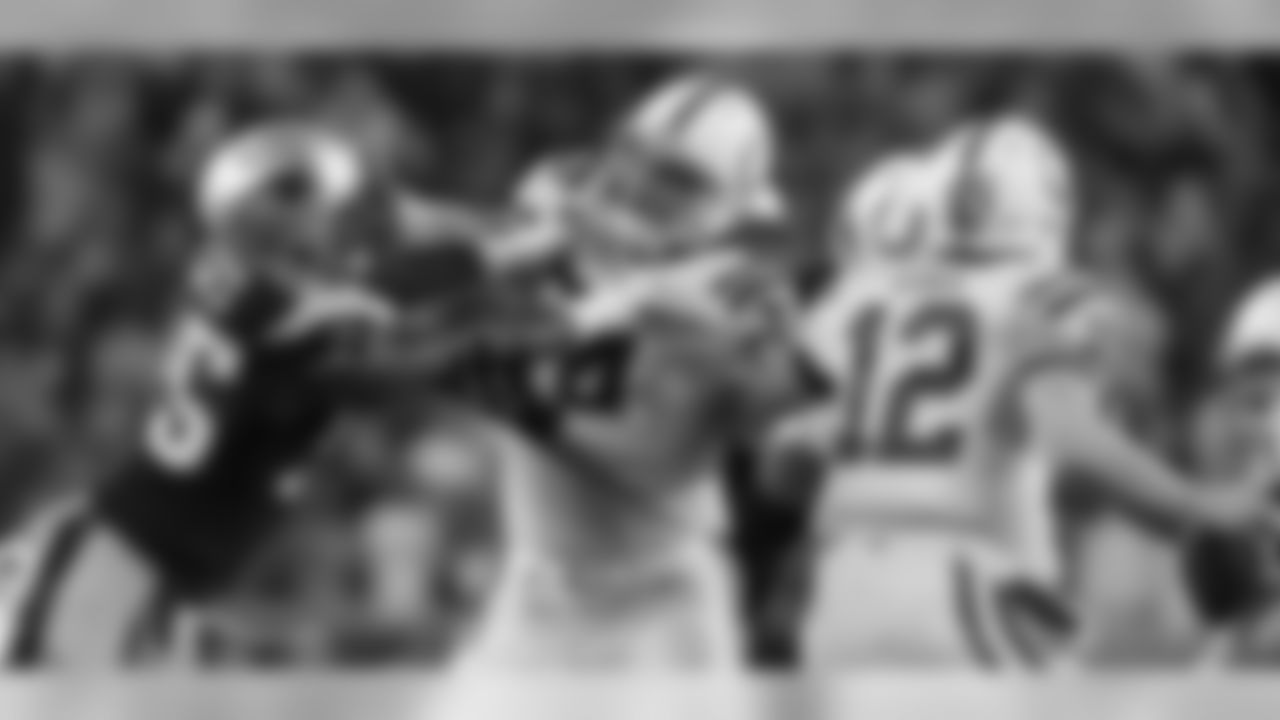
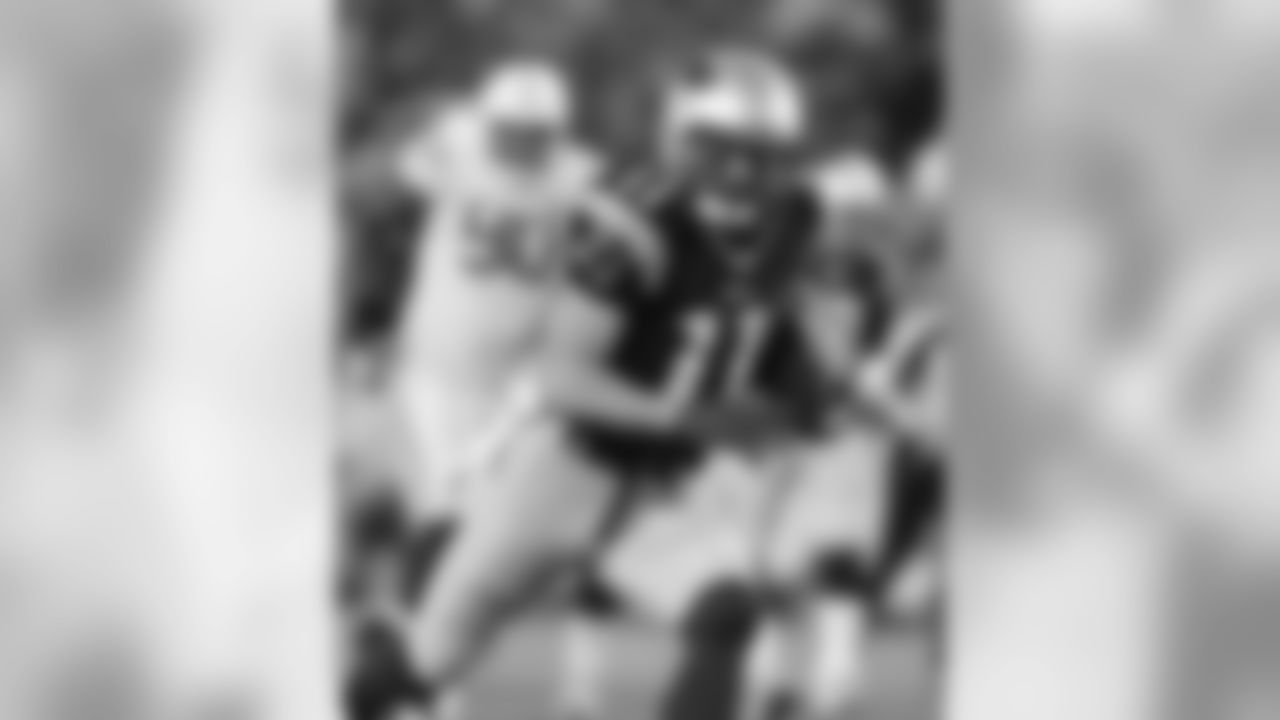
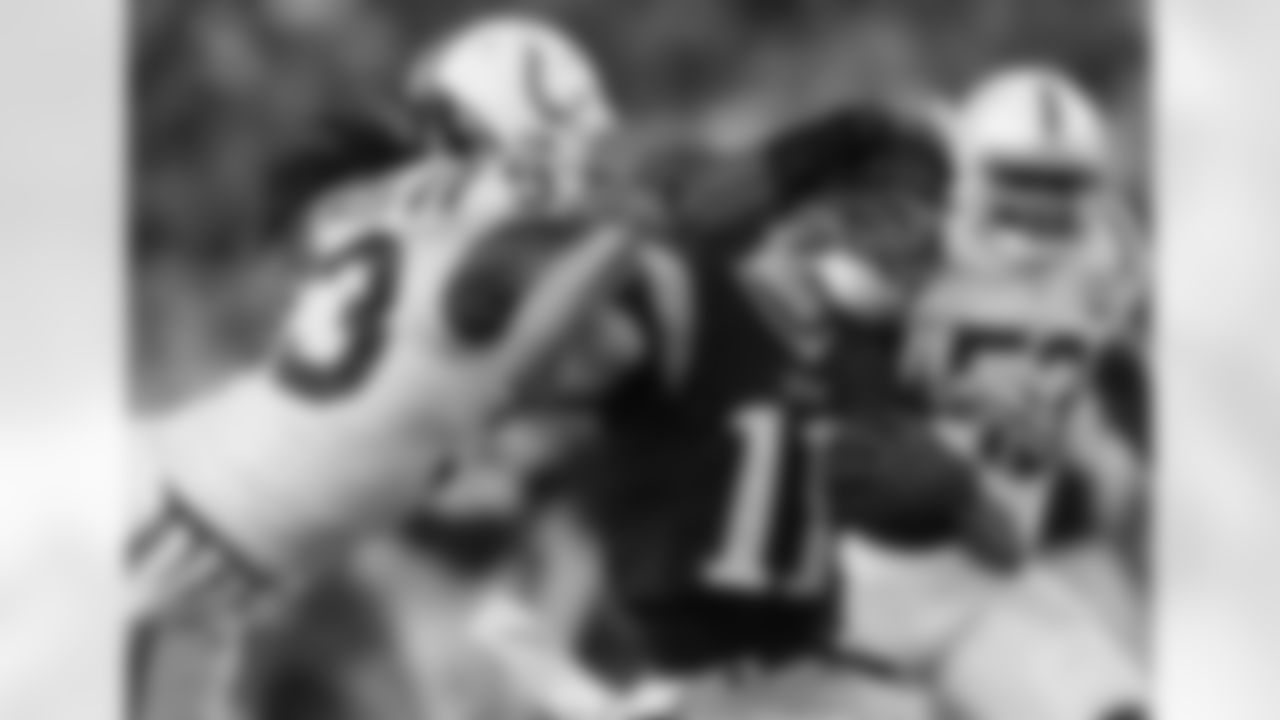
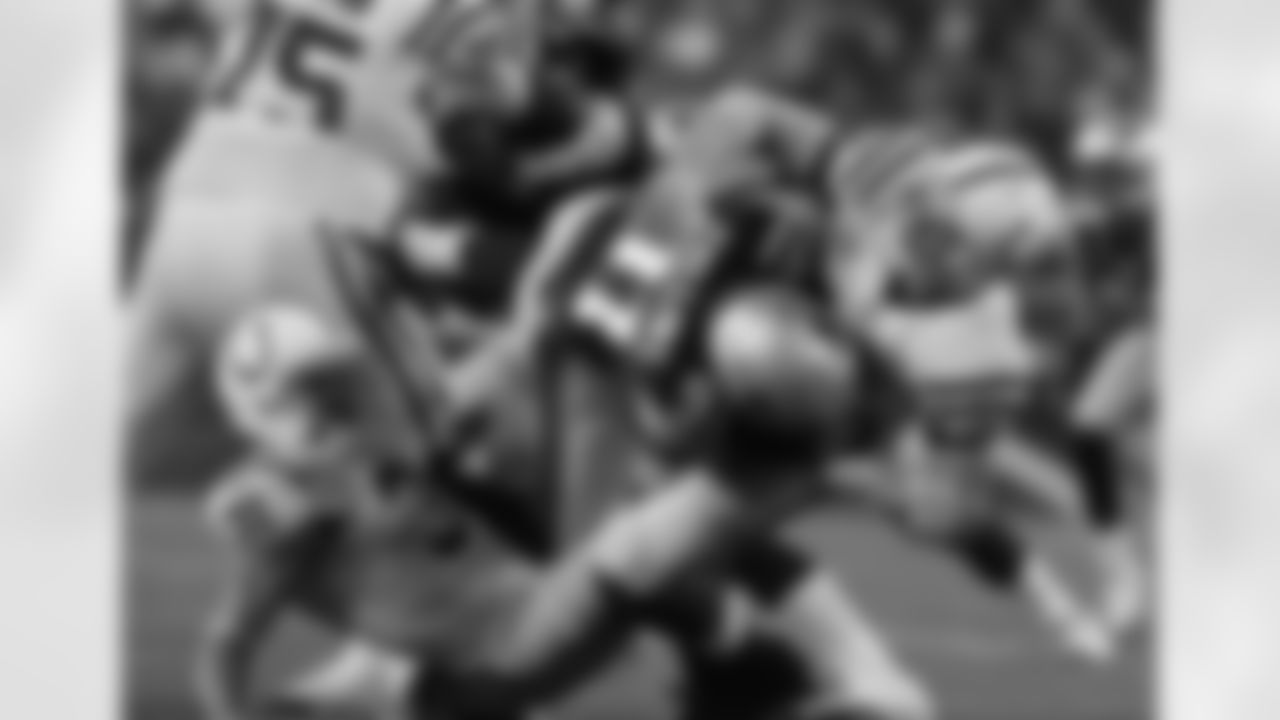


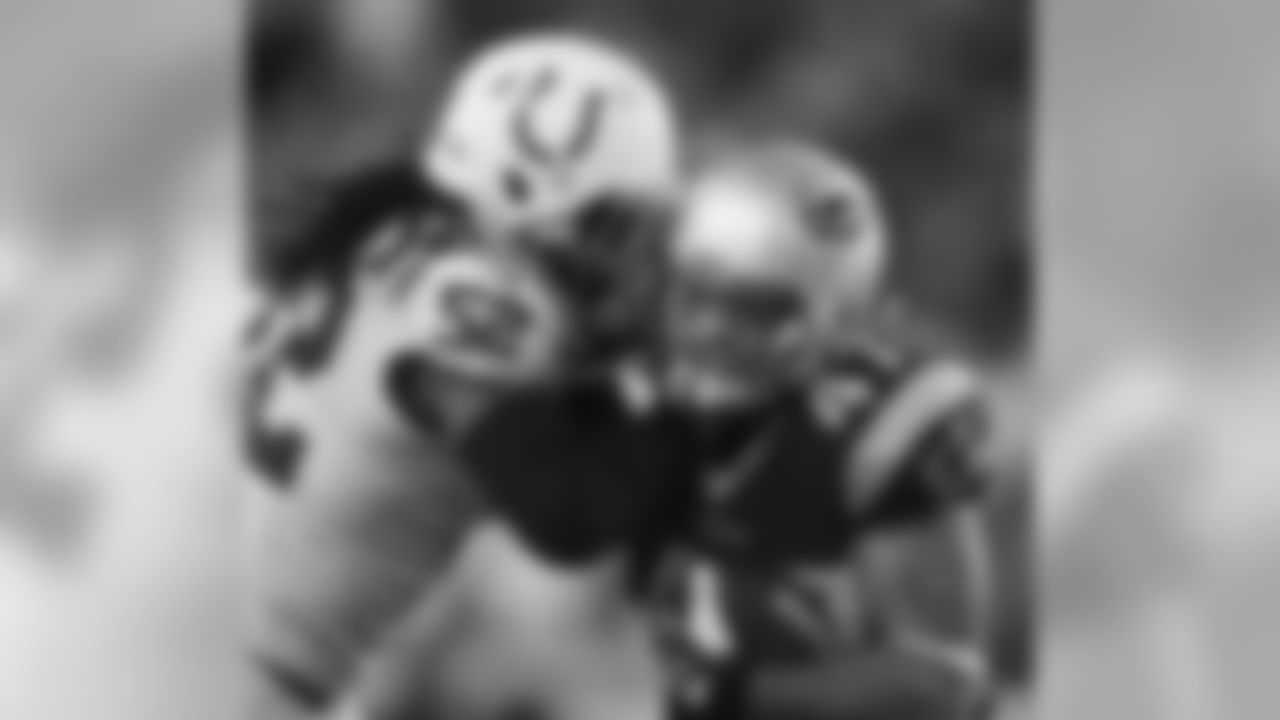





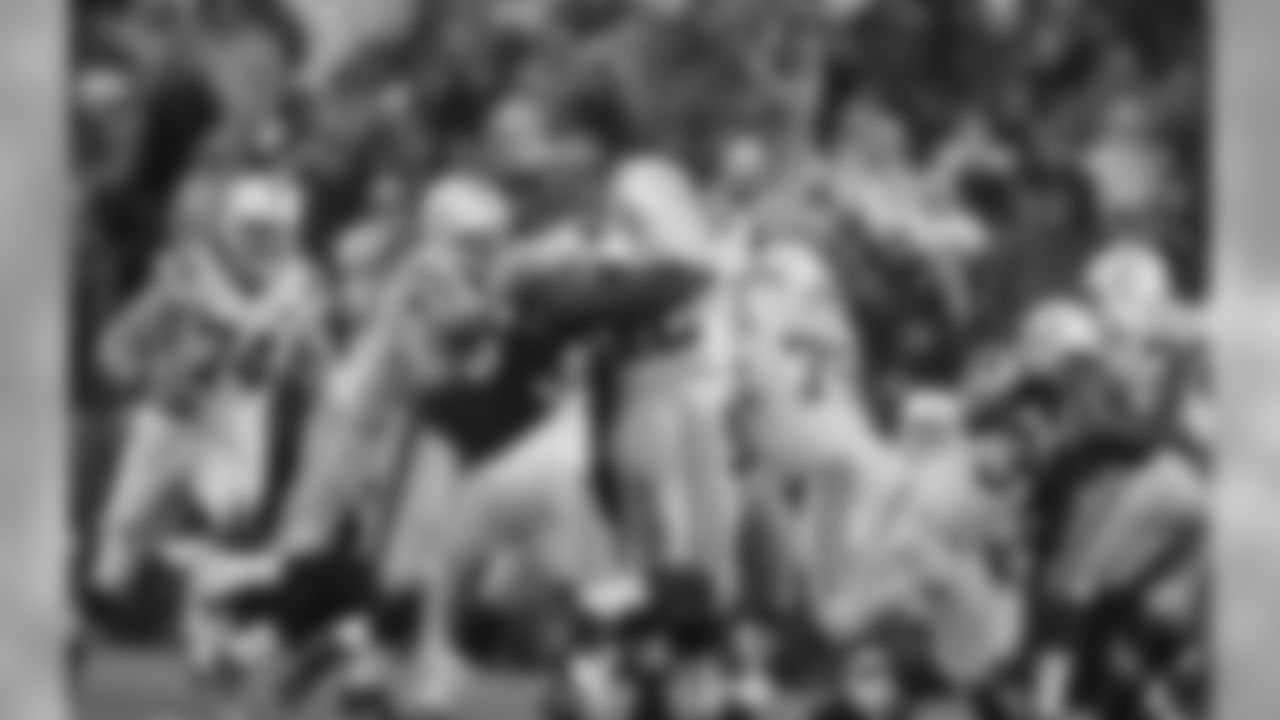






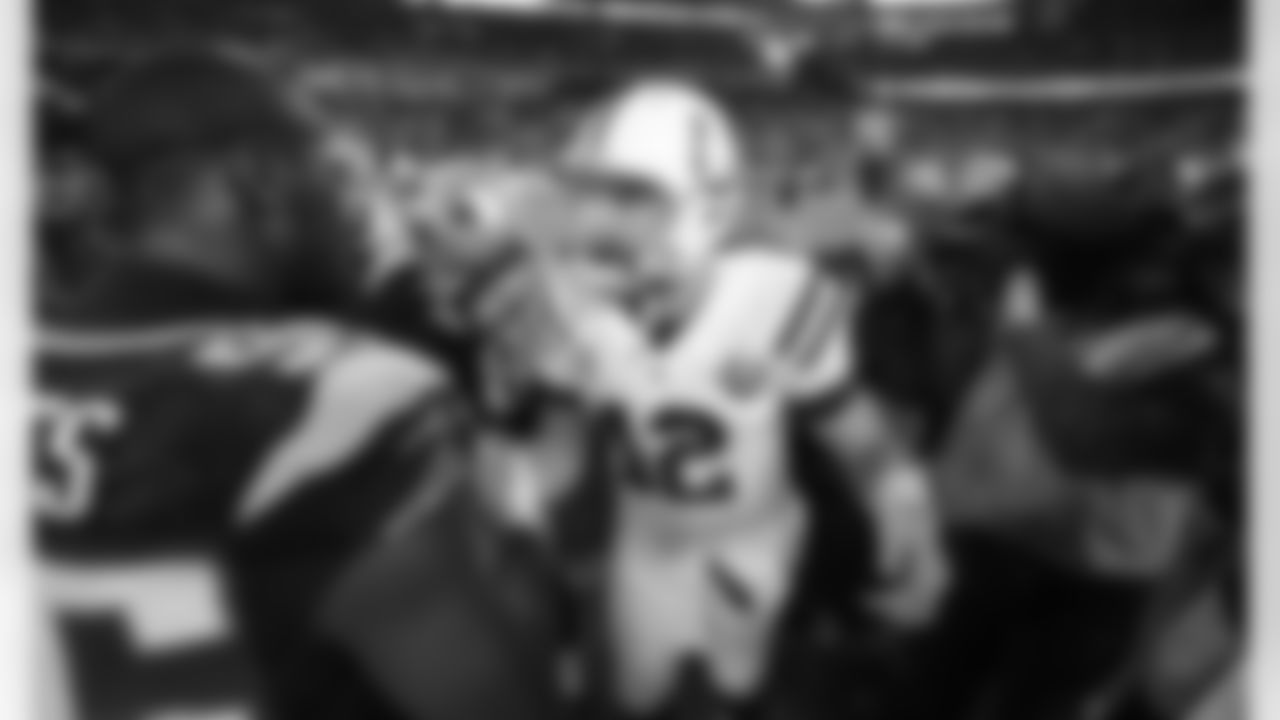



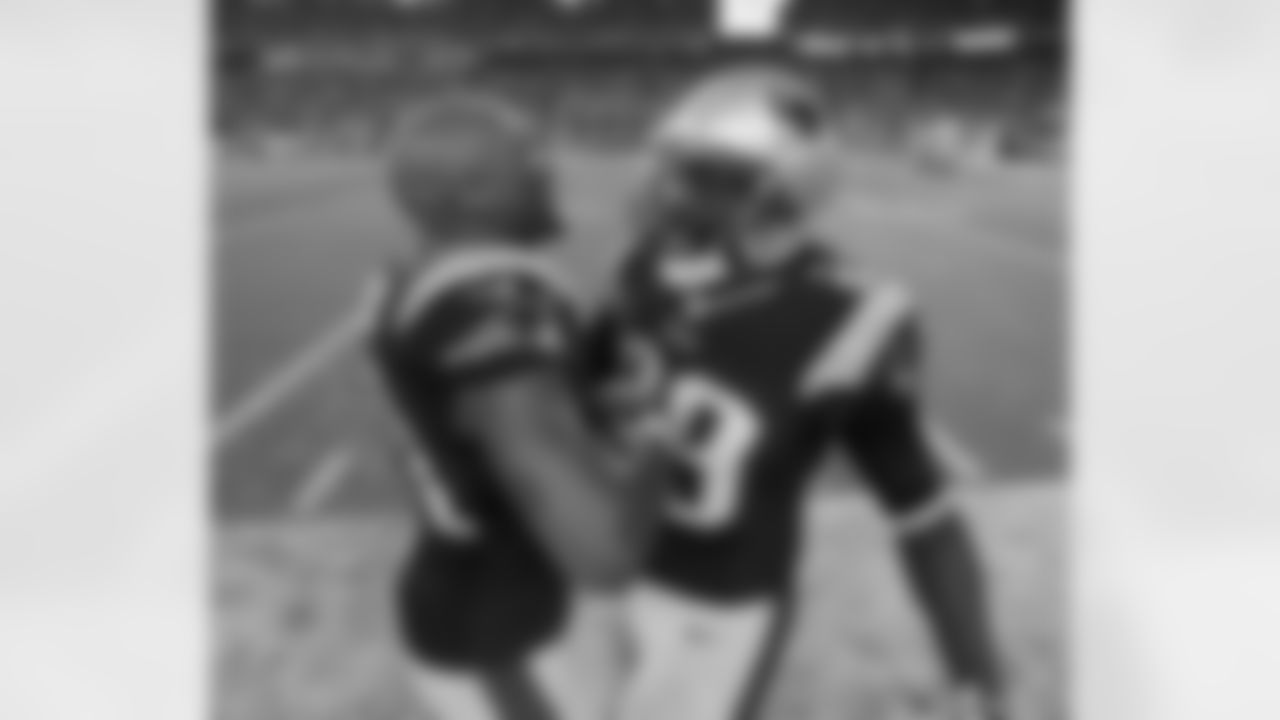



Q:** But if you have important players sometimes it's not the same.
BB: Look, I've always had a good relationship with Adam. The NFL is a business. I'm not trying to write a story for you here, but this isn't news. There's free agency every year. Players change teams. We get them. Other guys get our guys.
Q: There's that quote, 'You call it a business, we call it a game. You call it a game, we call it a business.' That's the undercurrent of the whole model.
BB: It's the NFL. And there will be some next year. You can write about those too. You can make a big story out of that: 'So and so left the Patriots for somewhere else.' There it is. You can get a head start on it right now.
Q: Do you spend time on that stuff right now? Projecting it since you have a number of guys?
BB: Right now we're on Indy.
Q: I'll wait for the pre-free agency press conference.
BB: I'll leave that to the experts.
Q: Obviously players in the secondary need a certain skill set, but how important is confidence?
BB: Huge, huge. It's huge.
Q: Have you ever had a guy that you looked at and he had all the tools to be a number one corner, but because of that aspect he couldn't attain that?
BB: Multiple times, yeah. It's a tough position to play mentally. There aren't that many plays that you're really involved in – six, eight, 10, whatever it is. It could be one or two. But those are the game-changing plays. Yeah, it's a big part of that position. It's not like being a pitcher or a quarterback, you know you're going to get another chance to throw the ball. Those guys only get, there are only so many plays for them. But they're huge. They're big plays. Confidence is a big part of it, no question.
Q: Any examples of guys?
BB: I can give you plenty of them. And there's the flip side, the guys you look at athletically and say, 'Don't have this, don't have that, don't have something else.' [They] lack some skills relatives to top athletic guys at that position, the Everson Walls and the Len Barneys and guys like that and [they have] 50-some career interceptions and they're all over the receivers no matter what route they run. But when you put them on a stopwatch, you shake your head and say, 'I'm worried about his speed.' But there's game speed and there's anticipation and there's instincts and those things can neutralize some testing measurables. So, yup, huge part of that game.
Q: It seems like on special teams in terms of coverage you guys have a lot of experienced guys, whether it's Matthew Slater or Jonathan Casillas or Nate Ebner is a relatively young player but he's played a lot. As a staff, does that allow you to be more creative with those units? How does it help you guys to have so many players that have so much experience?
BB: I think there are just a lot of little things that would be really hard to quantify, but it's… the kicking game is nothing more than organized chaos. You've got guys running around all over the place. But there's an organization to it, but there's certainly an improvisation to the every play. Every play is different. That's one thing you learn about coaching special teams, is every single kick is different. Every kick is different, the situations are different, then the players that you're matched up against are different. So, each plays has its own unique qualities. But when you have experienced guys playing together, a lot of that is being able to play off each other. If you're here, I'm there, I can replace you, you can replace me or we can see the play unfold and just get to the right spots based on experience and anticipation and kind of that mental communication of, 'OK, I see what you're seeing, I know what you're going to do, therefore I know what I'm going to do to compensate for that.' But that comes through experience and reps and just the anticipation of what to do and experience. Having the confidence to know, 'Do I have time to do this and still be there? Do I have to just go there right now? Who is the returner and where is the kick and what's the hang time?' You just have to somehow factor all those things, computerize all those into your system and adjust on the run and go. There's a lot of stuff happening. Those guys have to make a lot of decisions in split seconds and it all changes after two, three, four steps down the field. Then how it starts and then how it develops and then what happens and guys get bumped and fall down and their lanes adjust. Or you go to block a guy, but somebody is there before you get to your guy. Do you block him? Do you bump him [and] still get your guy? Do you take their guy? You know, all that. There are a million things like that. Like I said, the more experience you have, the more that guys play together and, 'You're out of position, I'll take your guy. You scramble and try to get my guy.' Or, 'I'm just going to stick on my guy, you scramble and try to get your guy.' You know, all those things. Yeah, there's no substitute really for experience and doing it. It's a lot of that stuff. You can get on the chalkboard, but once you get out on the field, it's a whole new world. And I'm telling you, every kick is different: the distance, the direction, the hang time, in addition to all the different situations that come up. When you have to actually deal with the ball in flight and the relationship of the blocker to the coverage player to the ball to where it is on the field, the angle, it's all different. So, there's an instinctiveness and an awareness that's high. It's high. It's not by the book. You have to read it as you go. So, that experience, it really helps. Jonathan has really done a good job of that, coming in and doing that. Don Jones has given us that, Slater, Chris [White], like you said, Nate, even though he's a young player, Tavon [Wilson]. They're young, but those guys have played a lot of snaps in the kicking game. Same thing with [Brandon] Bolden. Those guys are three-year type players but it's been a lot of plays. It's certainly not where they were two years ago but now playing together, being with the same coaching staff, being in the same type of system, following the same rules, having the same… sometimes you have latitude, sometimes you don't. You have to know when you do, when you don't, who you're working with, so forth and so on. Yeah, experience is huge. It's big.
RELATED LINKS







































